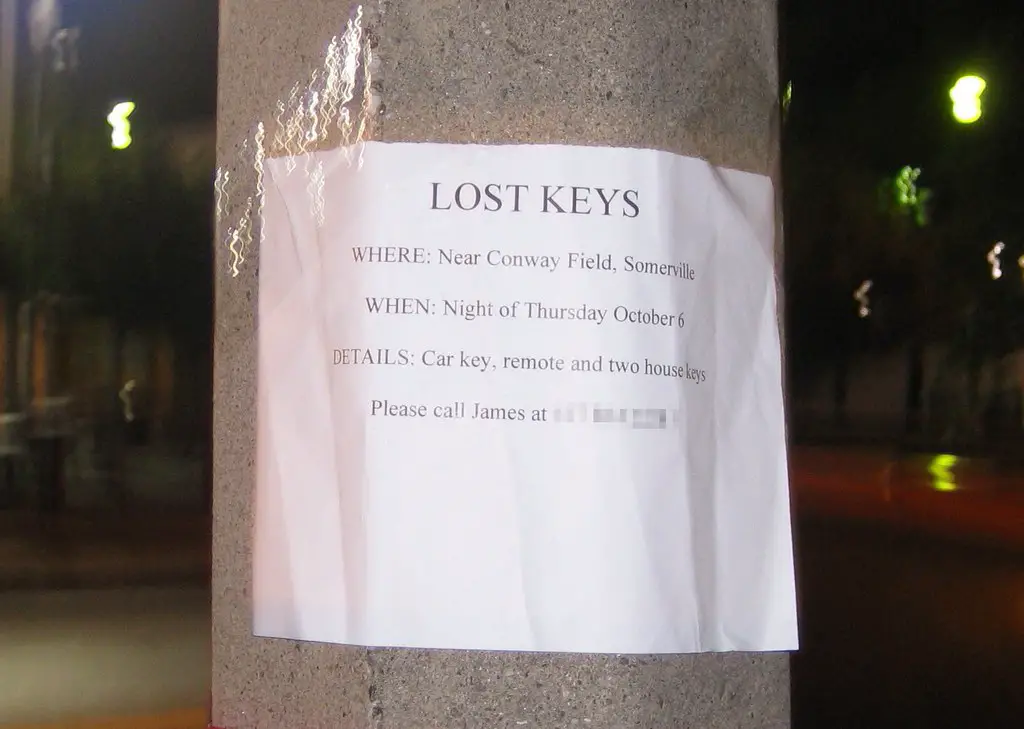You ever walk into a room and immediately forget why you’re there? Or open your phone with a mission, only to end up scrolling memes like your brain hit the “reboot” button? Yeah—same. We joke about getting “old,” but sometimes the little glitches aren’t just quirky moments—they’re subtle hints your brain might be aging faster than the rest of you. The worst part? These changes are sneaky. They creep in quietly while you’re too busy blaming stress, screens, or that second glass of wine.
So before you chalk it all up to “just being tired,” take a beat and scan this list. From zoning out mid-convo to weird emotional swings, here are 13 subtle signs your brain might be throwing up a few red flags. No doom, no gloom—just a heads-up from your noggin.
1. You’re Constantly Misplacing Things

If your keys have a habit of playing hide-and-seek, and your glasses are perpetually MIA, it might be more than just absentmindedness. Frequently misplacing items and being unable to retrace your steps to find them can be an early sign of cognitive decline. This isn’t about forgetting where you put your phone once or twice; it’s about a consistent pattern that disrupts your daily life. If you’re finding that these lapses are becoming more frequent, it might be time to pay attention. Moreover, as noted by the National Institute on Aging, while occasional forgetfulness is normal, persistent issues with memory can indicate more serious problems. They suggest that if memory problems are interfering with daily life, it’s important to consult a healthcare provider.
One easy way to check in with yourself? Start tracking how often you lose things—and how long it takes to find them. If you’re spending more time playing detective than actually using the items, that’s a signal. Technology like smart trackers or setting designated “drop zones” can help in the short term, but if the pattern continues, your brain might be trying to tell you something more serious. Think of it like your brain’s version of a smoke alarm—annoying but not to be ignored.
2. You Get Lost in Familiar Places

Taking a wrong turn in your own neighborhood or forgetting how to get to a frequently visited location can be unsettling. Disorientation, even in familiar settings, is a warning sign of cognitive issues. While occasional confusion is normal, consistent disorientation is not. If you’re finding it increasingly difficult to navigate places you know well, it’s time to take note. The Cleveland Clinic also notes that getting lost in familiar places is one of the early signs of dementia. They advise that if you or someone you know is experiencing this symptom, it’s important to consult a healthcare professional for evaluation.
This isn’t just a GPS fail—it’s a deeper glitch in your internal compass. If you’re finding that landmarks look “off” or if you start second-guessing your route in the middle of a routine drive, that’s your brain waving a little red flag. Spatial orientation is handled by specific parts of the brain like the hippocampus, which happens to be one of the first areas impacted by aging and Alzheimer’s. So when you suddenly can’t find the entrance to your go-to grocery store, don’t just shrug it off. Your brain may be showing signs of wear you can’t afford to ignore.
3. You Struggle with Familiar Tasks

Remember when you could whip up your favorite recipe without glancing at the cookbook? If you’re now finding it challenging to follow familiar recipes or manage routine tasks, it could be a red flag. The Mayo Clinic notes that difficulty completing familiar tasks is a common early sign of cognitive impairment. It’s not just about forgetting new information; it’s about struggling with tasks that were once second nature. If you’re noticing this shift, it’s worth discussing with a healthcare professional. Difficulty performing familiar tasks, such as preparing a meal or getting dressed, can be an early warning sign of dementia. They emphasize the importance of recognizing these changes early to seek appropriate support and care.
You might also notice that multitasking suddenly feels impossible—like trying to brush your teeth while packing a lunch turns into a five-act tragedy. Even managing your TV remote might feel like decoding a spaceship control panel. When muscle memory no longer kicks in, it could mean your brain’s neural pathways are fraying at the edges. It’s not about losing intelligence; it’s about how your brain is organizing (or not organizing) information. And that’s definitely worth a second look.
4. You Repeat Yourself in Conversations

If friends or family members point out that you’re telling the same stories or asking the same questions repeatedly, it might be more than just enthusiasm. Repetitive conversations can be an early sign of memory loss. It’s easy to dismiss this as just being chatty, but if it’s happening frequently, it’s worth considering. Pay attention to feedback from those around you—they might notice changes before you do. According to Healthline, repeating oneself in conversations is a common early symptom of dementia. They suggest that if this behavior is new or worsening, it could be a sign to seek medical advice.
This isn’t about being forgetful in a charming grandpa kind of way—it’s about your short-term memory not recording new info effectively. You might ask someone how their vacation was and five minutes later ask again, with no clue you’ve already heard the answer. Not only can this strain your relationships, but it can also make social settings feel more confusing or overwhelming. If your brain isn’t holding onto recent details, it’s time to ask why. And no, Post-it notes aren’t a cure—they’re just a Band-Aid for a potentially bigger issue.
5. You Experience Mood or Personality Changes

Sudden shifts in mood or personality, such as increased anxiety, confusion, or suspicion, can be indicative of cognitive decline. The Alzheimer’s Association notes that mood and personality changes are common in the early stages of Alzheimer’s disease. If you or those close to you notice significant changes in your behavior or emotional state, it’s important to address these concerns. Early intervention can make a significant difference. Mood swings and personality changes can be early indicators of Alzheimer’s disease. They recommend monitoring these changes and consulting a healthcare provider for assessment.
Sometimes the change is subtle—you’re more irritable than usual, or maybe a little more withdrawn. Other times it’s dramatic: bursts of anger, paranoia, or depression seemingly out of nowhere. That’s because changes in the brain can alter how you perceive and react to the world around you. You’re not “just getting older” if your personality starts to feel like someone else’s. Don’t wait for someone else to say something—trust yourself enough to ask what’s going on inside your own head.
6. You Zone Out in the Middle of Conversations

Mid-sentence brain fog? Yep, that’s a thing. One minute you’re locked into a convo about someone’s vacation, and the next, you’re mentally Googling if you left the stove on. If your brain keeps hitting the “mute” button during chats, it might be more than just being distracted. Sure, everyone zones out once in a while, especially during a long-winded brunch story, but if it’s happening a lot, it’s worth noting.
Losing your train of thought mid-discussion could mean your brain’s processing speed is slowing down. It might struggle to juggle information, especially if there’s background noise, multiple speakers, or complex ideas floating around. You might find yourself asking people to repeat things—not because you didn’t hear it, but because it just… didn’t land. That’s your brain buffering like dial-up internet in 2025. It’s also why conversations feel more exhausting than they used to. Mental fatigue from simple interactions isn’t normal. If you’re zoning out more than tuning in, it’s time to pay attention to what your brain might be trying to tell you.
7. Your Vocabulary Starts to Shrink

If you find yourself saying “thingy” or “whatchamacallit” way more than you used to, your word bank might be running a little low. This sneaky little sign often shows up when you’re searching for a super basic word and it just…vanishes. You know it’s there—you can almost taste it—but your brain is playing hard to get.
This isn’t about suddenly becoming a walking thesaurus—it’s about keeping access to the words you already know. Struggling to name objects, describe emotions, or follow complex instructions might mean your language centers are slowing down. You might notice longer pauses, more filler words, or switching to vague descriptions like “the blue box thing” instead of “recycling bin.” It’s frustrating, especially when you used to be quick with a witty comeback or slick presentation. Now, you second-guess yourself mid-sentence, and conversations can feel more like puzzles than fun banter. If your inner dialogue is starting to sound like a game of Mad Libs, don’t ignore it. Your vocabulary is a reflection of cognitive sharpness—when it slips, it’s time to take stock.
8. You Struggle with Time Management

Missing appointments, constantly running late, or wildly underestimating how long a task will take? That could be your brain’s internal clock getting a little wobbly. Time management relies on something called “executive function,” which is basically your brain’s command center—and aging can throw that system out of whack.
Tasks you used to breeze through now feel weirdly complicated or take longer than expected. You might open five tabs, start three chores, and finish exactly zero of them. You tell yourself you’ll call someone “later,” and then later turns into next week. Deadlines sneak up on you. Plans fall apart. Reminders become your new best friend. And if your once bulletproof calendar skills are now more like a guessing game, it’s a sign to watch. Trouble organizing time can be a clue that your cognitive multitasking is wearing thin. Being “bad with time” might not be just a quirk—it could be your brain waving a tiny, flustered white flag.
9. You’re Suddenly Overwhelmed by Decision-Making

Ordering lunch shouldn’t feel like choosing a life path. But if picking between two salad dressings sends you into a mini-spiral, something might be up. Cognitive aging can chip away at your decision-making abilities, making even low-stakes choices feel mentally exhausting.
Your brain has to filter, compare, assess, and commit—and if it’s not firing on all cylinders, that process slows way down. You may second-guess yourself constantly, feel stuck in indecision, or avoid making choices altogether. What used to be “just pick something!” becomes “what if I choose wrong and everything is ruined forever?” You might notice it creeping into bigger life areas too—retirement decisions, health care options, even how to manage your time day-to-day. That hesitation isn’t just about being careful. It’s about your brain needing more effort to process and evaluate information.
10. You Stop Feeling Curious

Remember when you used to go down Wikipedia rabbit holes at 2 a.m.? Or randomly Google how volcanoes work just because? If that natural curiosity has dimmed and you feel mentally “meh” more often, it could be more than burnout. It might be your brain’s drive for novelty and engagement slowly shrinking.
Aging brains are less likely to seek out new info, which can dull creativity, memory, and mental resilience. If you notice yourself avoiding new books, skipping the news, or brushing off unfamiliar topics, that’s a subtle red flag. Curiosity keeps our neurons active, adaptable, and flexible—when we stop feeding it, things stagnate. You might not even realize it at first. You just start defaulting to old routines, rewatching the same shows, or skipping stuff that used to pique your interest. That slow fade of intellectual hunger? That’s your brain quietly going into energy-saving mode.
11. Your Emotions Feel… Off

You cry at commercials. You get irrationally annoyed by leaf blowers. Or you feel kind of numb, even in moments that should stir something. Changes in emotional regulation can sneak up slowly, but they’re one of the clearer signs that brain function is shifting.
You might overreact to minor frustrations or feel oddly indifferent to major news. Emotional ups and downs are totally human—but if they feel sharper, flatter, or just not like you, it’s worth paying attention. Your brain’s ability to process emotions lives in areas that can be sensitive to aging, like the prefrontal cortex and amygdala. So if you’re suddenly weepy, cranky, or checked out without a clear reason, your brain might be struggling to keep balance. These changes can affect how you connect with others, handle stress, or even make decisions. It’s not about being “too sensitive”—it’s about your mind’s control panel needing a tune-up.
12. You Avoid New Technology Like It’s the Plague

Let’s be honest: no one wants to learn a new remote control system every six months. But if you’re avoiding tech entirely—phones, apps, streaming platforms—it might be more than just cranky nostalgia. Avoidance can sometimes be a sign that your brain’s adaptability is slipping.
Tech requires mental flexibility, pattern recognition, and short-term memory—skills that tend to decline with age. If you used to be tech-savvy but now get flustered by basic updates, it’s a signal your brain is struggling with complex input. You might feel anxious around new systems or frustrated when things don’t click quickly. So you stop trying. You hand the phone to your kid. You say, “I’m too old for this,” and opt out. But that’s exactly when cognitive aging can accelerate—when we stop challenging our minds and start defaulting to what’s familiar. The less you adapt, the harder it becomes to adapt at all.
13. You Wake Up Mentally Exhausted

You slept eight hours, you didn’t do anything particularly taxing yesterday, and yet—your brain feels like it ran a marathon. Sound familiar? Chronic mental fatigue can be an early whisper from your brain that it’s struggling to keep up.
This kind of tired isn’t fixed with coffee. It’s that foggy, slow-start energy drain that makes even simple thoughts feel like effort. You might find yourself rereading emails, zoning out during meetings, or taking longer to formulate responses in conversation. It’s not laziness—it’s cognitive burnout. Aging brains often require more rest to recover from the same amount of stimulation. If your mental clarity is only showing up in short bursts and fading fast, that’s worth noticing. Especially if this fatigue lingers even after rest or worsens with stress. Your brain’s battery might not be holding a charge like it used to.
